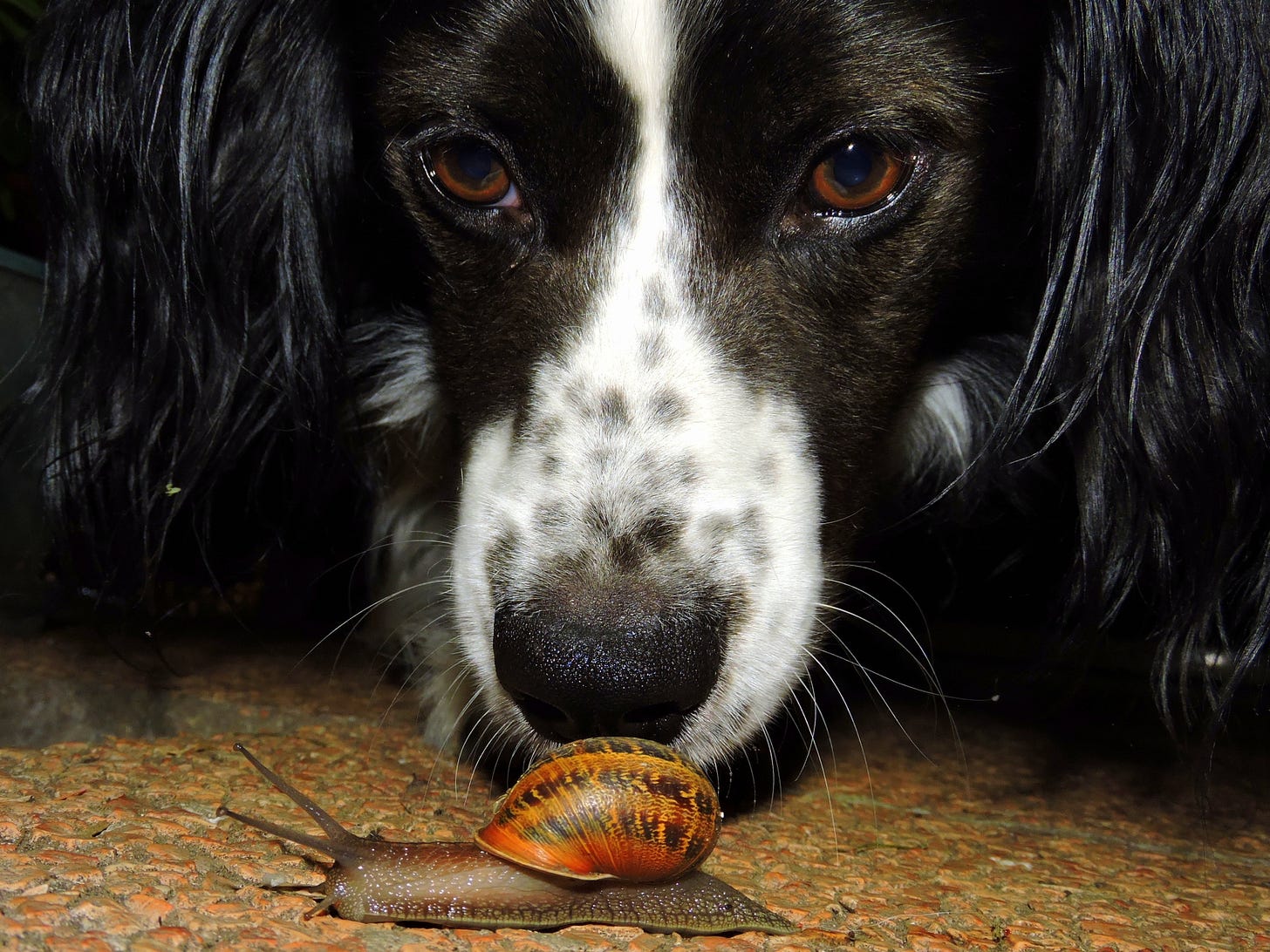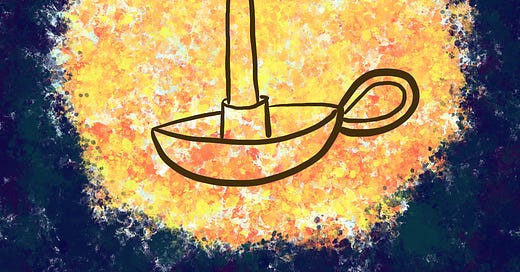Hello, friend! Hope you are doing well. I have two questions for you to ponder:
1. How often do you feel courageous?
2. Do you know what courage looks like?
If you feel at all uncomfortable about answering either or both of these questions, even just silently to yourself, you’re in good company. Confession: I have put off writing this post for weeks, ostensibly because I’ve had a lot to juggle lately. The real reason for my procrastination? Honestly, most of the time I feel like an absolute coward. As if to illustrate my own point in an embarrassing way, I was even afraid of writing this post. So how can I write about courage if I don’t feel like a brave person very often?
But I have a hunch that many of us can relate to feeling inadequate when it comes to evaluating our own courage. Does this ever ring true for you? If yes, I think this self-perception of inadequacy may be closely tied to how we feel about question #2: Do you know what courage looks like?
If I had to answer this question out loud right now, I’d probably spout some responses based on what I think courage should look like. Stories both true and fictional flood my imagination—of people risking their lives to rescue others, whether from a burning building or on the frontlines of battle; of people risking their reputations (and often their lives as well) to protest an egregious injustice to humanity; of people working long, exhausting hours to care for patients who are sick, critically injured, or dying; of people expending all their energy to make ends meet so they can provide for their loved ones. I could name many more vivid images of courage that come to mind, and I’m sure you could, too.
While I don’t want to diminish in any way these inspiring hallmarks of courage, especially the true stories of people we admire who have done brave, hard things, I do want to offer some additional ways of looking at courage that may be less visible. Because when it comes to how we see ourselves, I think the only answer to the question Do you know what courage looks like? that matters is what courage looks like for you. Here are a few observations that have helped me reframe courage in a more self-compassionate light.
Courage does not equal fearlessness
You’ve probably heard this before, but it bears repeating: courage is not the same thing as fearlessness. Merriam-Webster defines courage as the “mental or moral strength to venture, persevere, and withstand danger, fear, or difficulty.” Do you see that the word “fear” is in this definition of courage? Courage is summoning the strength to withstand fear, which to me implies that fear is not something we can just cast aside or deny. It’s there with us, along for the ride—but it doesn’t have to take the driver’s seat.
When I feel like a coward, I have to remind myself this is because I’m imagining there is no room for fear if I want to be a brave person—but that’s not true. We feel fear for a reason; at its most elemental level, fear is a self-defense response to keep us safe from danger. Being afraid is not cowardly. Actually, the stories that inspire me most are the ones about people who were afraid but did the scary thing anyway. To me, this is true courage. I just have to remind myself that I, too, can be scared and still do brave things.
And unless we’re facing an immediate life-threatening situation, we don’t necessarily have to charge headfirst into our fears. Often, courage just means taking one step forward into the unknown—and then another step, and another. Writing this post one section at a time is how I’m facing my fear of not having anything worthwhile to say about courage.
A little courage is all you need for today
As I shared in my earlier blog post, More Gifts of Slowing Down, I’ve learned courage is not a quality at my beck and call but rather one I have to practice regularly and build up gradually, like a muscle. This can sometimes feel like an ongoing struggle, but it’s also good news. It means a little courage is usually all I need for everyday challenges.
Slowing down just a bit helps me access courage when I need it in the present moment. Instead of giving in to a self-perceived notion that I must act immediately without hesitation, which usually increases pressure and escalates my fear, I can instead choose to take a pause before I act. When I’m in a state of panic, I tend to inhabit a scarcity mindset that tells me (falsely) I have no resources to face the challenge in front of me. If I allow myself a moment to focus on my breathing, however, then I can slow down my racing thoughts long enough to evaluate the situation calmly and realize I already have the most essential resource I need to get started: myself. You see, I think panic hijacks my connection to myself, so the simple act of resisting panic and getting back in touch with myself helps me find just enough courage to move forward.
Curiosity can help you get to courage
In a very gradual yet persistent manner, curiosity has been popping up again and again throughout my life, reminding me it is an ever-present, easily accessible doorway into new frontiers just beyond my comfort zone. (I share more about the exciting discoveries, both great and small, I’ve experienced while walking alongside my curiosity in a previous post, Follow Your Curiosity.) Curiosity has taught me it can be a gateway to courage—a gentle footpath right outside my doorstep to the unknown, which often seems scary and intimidating.
If I’m feeling anxious about an upcoming event, if I’m worried about some pain or discomfort I can’t explain, or if I’m afraid the vision I have for a major life change is unattainable, curiosity nudges me forward one step at a time. When I can walk with my curiosity, it rescues me from mental paralysis and I’m able to reframe my fears with thoughts like, “It’s my first time hosting/attending this kind of event. No wonder I’ve got butterflies in my stomach. But isn’t it exciting? I wonder what this experience is going to be like. Let’s do it!”
Or “Huh, interesting. Never felt this kind of ache before. Well, I’ll just keep an eye on it. I wonder what would happen if I did some gentle stretches, drank more water, and went to bed early. Maybe that would help? Let’s find out!”
Or, “I have no idea how to achieve this life change I’ve been dreaming about. It’s kind of intimidating, but also exciting, that I’m venturing into unknown territory. Although I can barely see one step ahead of me, it feels like there are so many possibilities shimmering just around the corner. Let’s start exploring!”
We can give courage to each other
Encouragement is my favorite gift to give and receive, but ironically, I rarely reflect on the fact that its root word is “courage.” How simple, yet how profound and wonderful. This means we don’t always have to summon courage from within ourselves. We can give courage to each other!
I don’t know about you, but it doesn’t take much for me to feel greatly encouraged. I’ve had some hard days that suddenly felt more bearable after receiving one kind smile from a stranger. I’ve had my hope in humanity restored simply by experiencing the thoughtfulness of a driver making space for me to enter their lane. I’ve been reminded that I’m not alone in my doubts and struggles by listening to one person’s heartfelt story about their own life challenges.
You never know how one small, supportive gesture you make today can change a person’s life. It doesn’t have to be a dramatic act of kindness. Simply being there for another person who needs a listening ear, noticing someone and acknowledging, “I see you,” with a smile, or sharing your story with truth and vulnerability can help those around you feel less lonely. And in my experience, feelings of loneliness and isolation tend to compound fear. So when we help each other feel less lonely, I believe we also give each other courage. Not only because there is strength in numbers, but because there is strength in solidarity. “I thought I was the only one—now I know I’m not!” can be one of the most encouraging revelations to receive.
Sometimes when I’m feeling afraid, the best thing to do is reach out to someone else who is willing to listen to my story. If I harbor no expectations, at the very least, I’ll feel a little braver after being open and vulnerable, and I might even come away with some encouragement if they feel led to offer it to me. I trust that if I make an effort to encourage others, I will receive encouragement when I need it, too. And I almost always do.
Courage looks like a lot of different things
I hope these reflections I’ve shared have given you some new perspectives on courage, maybe even reminded you that you’re braver than you think. Courage looks like a lot of different things, and I believe the more we expand our own notions of courage, the more we’ll be able to see it and find it in ourselves. Some of the most inspiring examples of courage come from people I know who have modeled courage right in front of me. I’d like to leave you with a few small, shining examples of courage I have observed:
Getting out of bed in the morning when it feels like a monumental task requiring every ounce of your willpower and stamina, because you have just enough determination not to give up.
Sitting with someone and being fully present with their pain, their anguish, their raw vulnerability, without trying to fix anything or change the subject.
Staying calm during a crisis and doing the next helpful thing for others who are struggling with panic.
Making phone call after phone call to secure care resources needed for a child, parent, or other loved one who cannot speak for themselves.
Holding onto a small glimmer of hope even when everything seems dark and discouraging, and sharing this hope with those around you.

How about you?
What do you think about these different ways of looking at courage? If you reframe courage in any of these ways, does it help you see yourself as just a bit more courageous than you thought you were? What examples of courage have you observed from people in your own life?
May you learn to recognize and honor the courage within yourself, so that you can tap into it whenever you need to be brave. 🐌
This post is part of a series about the gifts of slowing down. You can read descriptions of these gifts in my earlier posts, The Gifts of Slowing Down and More Gifts of Slowing Down.




